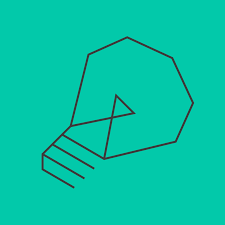



For Companies & Associations.
Danish culture is a bit like sitting around a campfire. This campfire could be anything from the daily tasks at work to the larger welfare state. The members around this fire warm themselves with feelings of (extreme) equality, trust, homogeneity, tolerance, informality, privacy, sarcasm, irony and dark humor. But what could all these mean to internationals who came to work in Denmark and want to join this circle?
Danish Culture is an ‘Extreme’ is a two-hour lecture, which paints a certain picture of the Danish mentality and its implicit expectations. The lecture draws from existing sociocultural, anthropological and historical work on Danes and Denmark. It is a humorous, serious and provocative lecture that battles through decoding known Danish values by finding out how they play out in real life and not least what they could mean to international employees and… Danes.
For Educational Institutions.
When Alice arrived in Denmark to study she realized that group work was really difficult for her, and even more difficult was to work with people she did not know…
Based on a Grundtvig’s ideas of educating independent, critical students, who can be responsible for themselves and the society – The Danish education system can seem very relaxed. You are free to try everything and without too much supervision – but you are responsible. A bit like if you were in Legoland. Teachers often work as guides and coaches – not masters of knowledge. But what could this all mean for international students and their teachers?
Alice in ‘Legoland’ is a workshop on Danish education culture that follows Alice – an imaginary international student who figures that she gets all the ‘Lego’ pieces from her university classroom but she has to find out by herself how to put them together… independently. In essence, to succeed, Alice has to learn how ‘to play’… also with people she does not know.
For Everybody.
Sarcastic, rude, ironic, weird, self-deprecating, dark, spontaneous and undetectable… are only some of the labels internationals have used to describe the peculiar humor of their Danish colleagues. It is ironic in itself that one has to actually explain humor, and specifically Danish humor… to internationals.
In Denmark, irony and sarcasm are the salt and pepper of daily life, acting as social lubricants through teasing and unexpected remarks. Humor serves not only as a personality trait but also as an opposition to solemnity, often taking a pitch-dark tone. Danes are known for ridiculing nearly everything, using negative politeness and self-deprecation to break taboos. It also serves as an antidote to accepting ones mortality and fosters trust, cohesion, and commonality both in a unique way and in a way that ‘outsiders’ have a hard time getting it.
The two-hours talk focuses on: What is Danish humor all about? And how could internationals make sense of its many facets?
The essence of the Danish mentality.
Danish Culture is an “Extreme” is a relatively small book that paints a certain picture of the Danish mentality and its implicit expectations. The book draws from existing socio-cultural, anthropological, and historical work on Danes and Denmark. It is a humorous, serious, and provocative book that battles through decoding known Danish values by finding out how they play out in real life and, not least, what they could mean to internationals and… Danes.

Lecturer, Culturalist, Globetrotter & Speaker
Anatolie has arrived in Denmark 20 years ago from native Moldova and made the town of Herning his home. His drive, curiosity and “obsession” about how other people think and live made him reflect a lot about the Danish culture and society. It has also motivated him to travel the world and think about his own international background while taking root in ‘little’ Denmark.
Anatolie has held over 200 talks on Danish culture allover Denmark. He has initiated and has been part of a variety of international organizations and initiatives in Denmark with the goal to support internationals in Denmark.
He has been teaching Intercultural Communication at Aarhus University and other universities in Denmark. Currently, he is a full-time associate professor at VIA University College.
He is Dutch married with wife Vimke and son Oliver.
For Talks, Webinars & Workshops:
Email: anatoliecantir@gmail.com
Phone: + 45 27 333 495
Webinars: take place from a professional studio.
©Anatolie Cantir – 2024 – CVR 41422785






























